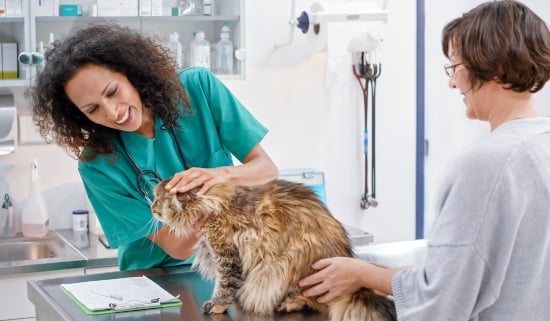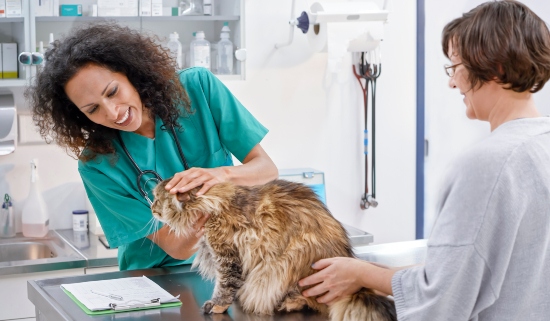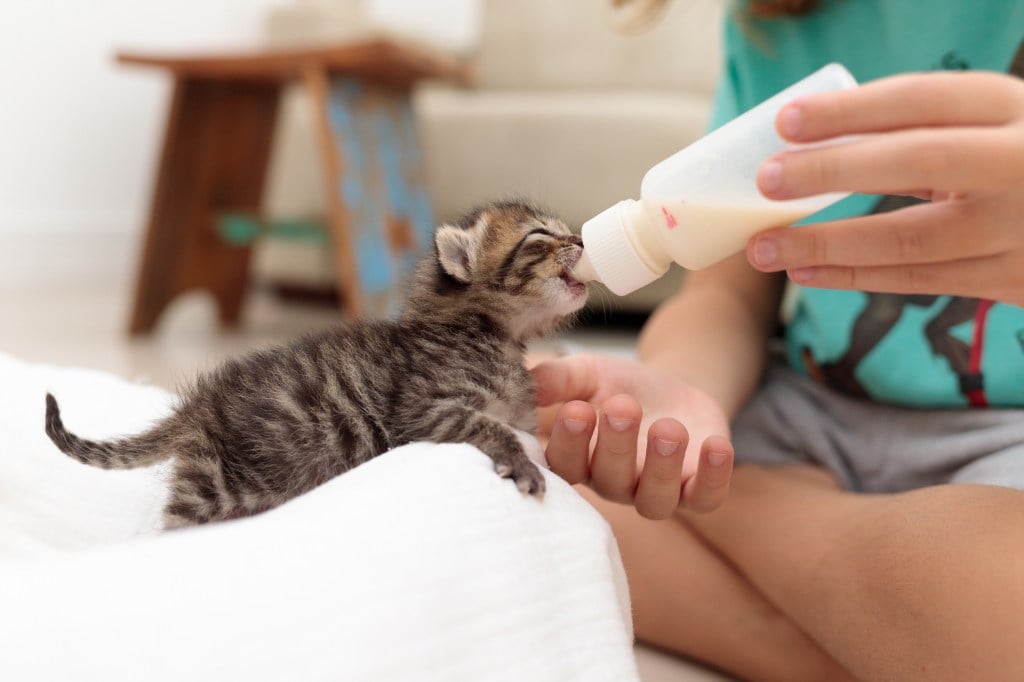Table of Contents

Being a cat parent is fun and rewarding, but it also comes with plenty of responsibilities. You’ve got to clean out the litter box, provide them with adequate mental and physical stimulation, and take them to the vet every year for their annual checkup.
Upon adoption and throughout their life, inoculating them against potential disease is also important. That said, there’s an ongoing debate regarding whether vaccinating felines against rabies — a very rare, but serious disease — is necessary. Today we’re helping you determine if your cat should get the vaccine or not.
Does Your State or Country Require the Rabies Vaccine?
In some states (and certain parts of the world), it’s required by law for cats to get a rabies vaccine even if they’re an indoor-only cat, even though the disease is rare. This is considered a preventative measure in the absolute worst-case scenario, and foregoing the vaccine when it’s a legal requirement would mean you’re breaking the law.
You can review this comprehensive list put together by the Animal Legal & Historical Center of Michigan State University to see if your state requires the vaccine, and by what age they should have it (many are within the first six months).
Are You Traveling to Another Country with Your Cat?
Though the United States as a country doesn’t require cats to have a rabies vaccination upon departure or entry, some countries do. It’s important to check what inoculation requirements your destination has for cats, otherwise you may risk a long quarantine. (Note that some countries require a quarantine either way).
Is Your Cat Frequently Exposed to Wildlife?
Though rabies is a rare disease as far as domesticated, indoor cats are concerned, it’s not quite as rare in the wild. If your cat spends time outdoors and is potentially exposed to other animals — including raccoons, skunks, bats, cats, dogs, and groundhogs — then having them inoculated against rabies is highly recommended. According to this 2014 study, 30.2% of tested raccoons, 29.1% of tested bats, and 26.3% of tested skunks had rabies.
Would You Consider Your Cat an Escape Artist?
Even if the intention is for your indoor cat to remain indoors, they can sometimes be really good at escaping. If you’re the proud owner of a feline that dashes out the door or runs away for hours or days at a time, then getting a rabies vaccine as a preventative measure is a good idea.
Do You Ever Board Your Cat While on Vacation?
If you frequently have your cat boarded, a rabies vaccine may be a wise decision. In many cases, the facility will actually require proof that all vaccinations are current, including the rabies vaccine. In cases where a boarding facility doesn’t require it, the chances of your cat contracting rabies still is very slim. However, there’s always that slight possibility they could be unknowingly exposed to the disease while out of the house.
The Bottom Line on Whether Your Cat Should Get a Rabies Vaccine
An indoor cat who stays indoors forever is not likely to contract rabies. In that case, getting the vaccine likely isn’t necessary (unless it’s required by law). However, if there’s even an off chance that your cat could be exposed, then inoculating them can provide you with great peace of mind. Rabies is a serious disease that can be fatal in all animals, even humans.
If you’re still unsure, have a candid conversation with your veterinarian about what makes the most sense for your feline. Also, if your vet seems to push the vaccine even though you feel it is unnecessary, it is OK to get a second or third opinion.
The content is not intended to be a substitute for professional veterinarian advice, diagnosis, or treatment. Always seek the advice of your veterinarian or other qualified health provider with any questions you may have regarding a medical diagnosis, condition, or treatment options.






